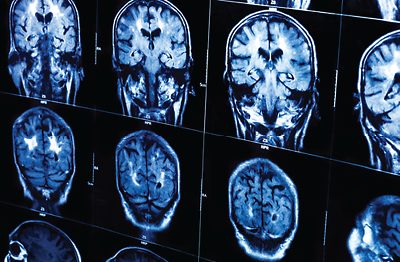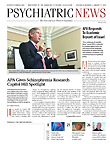Freud postulated that conversion disorder occurs when a person is so traumatized by an event that he or she attempts to repress memories of it, yet at the same time converts the emotional pain into physical symptoms.
New brain imaging results, published online November 20, 2013, in JAMA Psychiatry, appear to support Freud’s contention.
The lead scientist on the new study was Selma Aybek, M.D., formerly of the Institute of Psychiatry, King’s College London, and now with Geneva University in Switzerland.
The study included 25 subjects—12 with DSM-IV-diagnosed conversion disorder and 13 control subjects. The average duration of symptoms for the former group was 14 months, and all were experiencing conversion symptoms at the time of the study.
The researchers used functional MRI imaging to visualize the brains of the subjects while the subjects were asked to recall personally traumatic events. The researchers then compared the brain activity of the conversion disorder and control groups.
The researchers were able to identify several brain differences between the two groups. Notably, compared with controls, conversion-disorder subjects showed increased dorsolateral prefrontal cortex activity, decreased hippocampus activity, enhanced connectivity between the amygdala and the supplementary motor area, and increased supplementary motor area and temporo-parietal activity.
“These data offer support for the notion that the way adverse events are processed cognitively can be associated with physical symptoms in conversion disorder,” the researchers noted.
For example, when the conversion-disorder subjects showed excess activity in the dorsolateral prefrontal cortex, it may have reflected the strong emotions that they felt about the traumatic events. At the same time, they showed little activity in the hippocampus, which may have reflected their efforts to repress memories of the traumatic event.
Yet enhanced connectivity between the amygdala and motor areas suggested that subjects’ emotional pain was not completely repressed and continued to influence their motor areas. And finally, the excess activity in the supplementary motor area and temporo-parietal junction may have signaled conversion of their emotional pain into physical symptoms.
Also, the researchers noted, the temporo-parietal junction is known to influence bodily self-location, self-consciousness, and self-person perspective, thus likely playing a key role in out-of-body experiences.
“We were surprised to find an activation of the supplementary motor area and the temporo-parietal junction,” Aybek said during an interview with Psychiatric News, since “our primary goal had been to investigate how the brain reacts when remembering a traumatic autobiographical event and the way it suppresses unwanted traumatic memories.”
And while a key concept in the development of Freud’s theories, conversion disorder is by no means a historical entity, the researchers stressed in their report, as it accounts for 16 percent of neurology outpatient cases today. And the study has clinical implications, Aybek said.
“It highlights the role of traumatic life events in conversion disorder. The new DSM-5 criteria now no longer require the presence of a psychological factor in making the diagnosis. This is good for diagnostic purposes, but one should not forget that psychological stressors most probably still do play a role in the pathogenesis of conversion disorder. Even if neurologists now can make the diagnosis on their own, the management should still involve a psychiatrist.”
“This study utilized a novel approach to integrate neural events and connections with psychological factors in patients with conversion disorders,” Thomas Wise, M.D., director of behavioral health services at Inova Health Systems in Falls Church, Va., and a psychosomatic medicine expert, said in an interview. “The data should remind all clinicians that conversion disorders are not situations where a patient is ‘faking’ a symptom, but are in fact methods for reducing a distressing event or memory.”
The research was funded by the Swiss National Research Foundation, the University of Lausanne, the United Kingdom Medical Research Council, the National Institute for Health Research Biomedical Research Center, and the Institute of Psychiatry, King’s College London. ■

